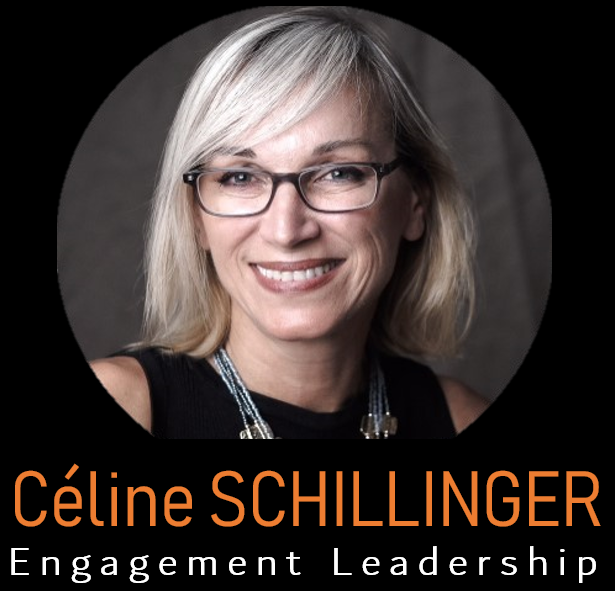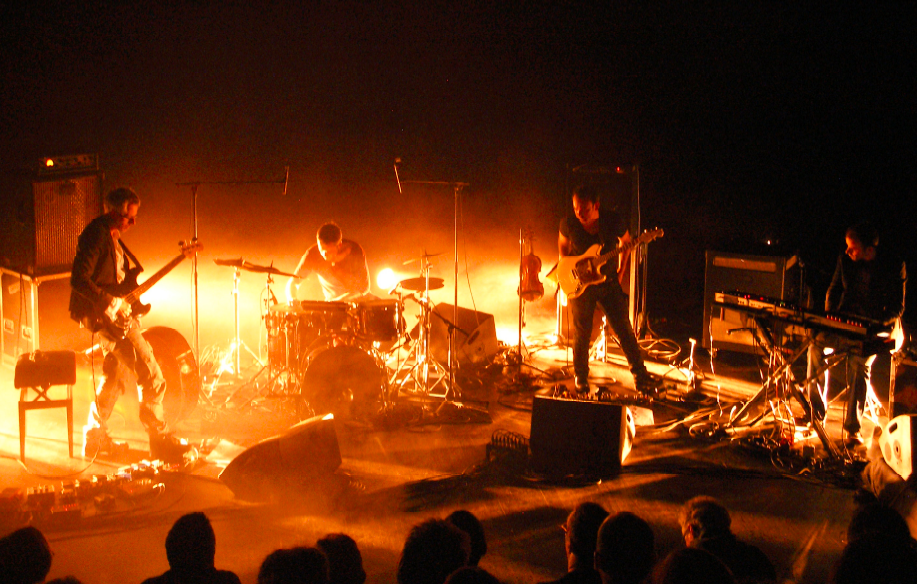The Sound of Social Business
Caravaggio Le Joueur de Luth, détail
“Social”, in its social business meaning, has a lot to do with the way business is made, the way corporations are organized and interact with their internal and external stakeholders, the tools they use to generate value in the age of networks. Nothing to do with art, music – leave aside the well-worn concept of collective value arising from our combined differences, as what an orchestra does.
But the gap may not be as wide as it seems. A recent interaction with a contemporary music band had the surprising effect to make me reflect on social business. How comes?
For two years already, I've been a volunteer Chairman of the Board of Sphota, a company that describes itself as a “musical innovation collective” or “co-op”. Sphota is the legal structure for the Caravaggio music band.
Named after the Florentine painter, Caravaggio was born in 2004 from the desire to produce instrumental and electronic music of pop-rock inspiration. Music is written by Benjamin de la Fuente (a childhood friend of mine) and Samuel Sighicelli, both renowned contemporary composers. The rock side is inspired by alternative / progressive rock, combined with a strong rhythmic. Bruno Chevillon and Eric Echampard, both experienced jazz musicians, complete the group. They compose and play their music in concerts in France and abroad, they have published several records and are the authors of the recent Larrieu brothers’ movie soundtrack: “Love Perfect Crime”.
My daily routine revolves around a pretty different world from Caravaggio. I’ve been involved for more than 20 years in international business, dealing with business development projects in the communications and health arenas. I have spent the last decade in a large multinational corporation. My co-workers are mostly of a scientific background. I’m developing and implementing engagement strategies and social collaboration initiatives.
But in our recent Board meeting, listening to the band’s achievements and projects, exchanging with the members on their aspirations and difficulties, I realized how much our experiences had in common. It’s not mere empathy… There are actually common features between what Caravaggio does, and what social business is (or should be).
1. Where does the unclassifiable belong?
Going across borders makes it complex to define what you do, which makes it difficult for others to understand and accept.
My friends at Caravaggio incorporate electro, contemporary music, rock, and progressive jazz. They compose pieces and meticulously organize their performances, while leaving space to creative freedom and improvisation. They explore the borders. They enjoy a positive image in the specialized media, but articles show the reporters are struggling with the question: “How to define their music?”
Similarly, social business goes across traditional boundaries in the corporate world. It has to do with communications, information technology, marketing, human resources, commercial operations, customer service, social responsibility. All these functions should be activated and coordinated to re-invent corporations in the age of networks.
But social business professionals know well, they walk a thin line between territorial behaviors and benevolent censorship. People in charge of each above-mentioned field are generally very suspicious about initiatives that encroach upon their territories while arising from a larger perspective. Cross-silo collaboration remains painful and difficult. Few companies have been visionary, or bold enough to handle the transformation at a top management level – anyway, I’m not convinced top-down is the only way to go social.
To solve the absence of identification, companies generally hook the “social business” or its engagement component to one of the existing silos, be it IT, Marketing, or Communications. By doing so, they sharply downsize its organizational and business impact. But at least, people are reassured: “now we understand what social business is” – it’s IT, or marketing, or comms.
2. Innovation is not mainstream. Social business isn’t either.
Although I wish Caravaggio to become world celebrities and sell millions of records, I doubt they are the next Lady Gaga. Because their music is complex, unusual and demanding, it doesn't target the mainstream listener. This is another similarity I find with social business: it’s not everywhere.
The enthusiasts may think it is, as they keep reading articles and books that trumpet the triumph of social business (see The Golden Age of Management is Now by @stevedenning) and engage into social media with other enthusiasts (like I do). But it’s an illusion. Within corporations, they is still a looooong way to go before people are convinced they have to go social, and even more before they change behaviors, policies and organizations.
This was the subject of a fascinating conversation I was part of recently, with famous social business thought leaders Dan Pontefract (@dpontefract) and Luis Suarez (@elsua). “Is social business gaining ground?” was the question. Are we on a curve of progress, or will social remain a niche forever? There was a silence… I was anxious for the answer… Then Luis said: “Things are changing. They’re not changing as much nor as fast as we would hope within companies, but in they do in the society as a whole. Society no longer accepts organizations to behave as they used to in the past”.
What social business evangelists have not yet managed to achieve, external pressure by social demand may bring forward.
3. Non-standard projects don’t fit into bureaucratic boxes.
There was a long discussion in our Board meeting about how Caravaggio could access various types of public funding, aimed at supporting artistic creation. Despite budget cuts, France still offers many of these, which are great for the diversity and vitality of the cultural fabric. Such funding is of paramount importance for Caravaggio, until the band broadly expands its audience – which may not happen. But funding means rules, processes, tick-boxing and bureaucrats. While they’re not fundamentally bad (as a citizen, I like the idea that the State doesn't spend my money without a minimum of control and guidelines), they’re hardly adapted to non-standard projects.
Too bad, Caravaggio is a special case in the contemporary music landscape as well as jazz or rock. Its music grounds itself on several aesthetics without fitting in any of them completely. The band plays its own musical compositions but is also open to cooperation with other musicians, creating a team which size varies according to the projects. It’s a music band but its performances are much more than mere concerts. Enough to frustrate a bureaucrat: standard projects are so much more comfortable.
This is another point of convergence with social business. Companies’ procedures exist to standardize initiatives to the maximum, in order to ensure control, replication, and to limit risks. Dave Gray (@davegray) explains well in “The Connected Company”, the concomitant rise of the connected customer and the service economy create complexity that the “divided company” (standardized and rigid) cannot address. What are needed today are not more procedures, but more agility, flexibility and connectedness. But most companies’ bureaucrats are not aware – or don’t want to see – and make it a tough obstacle course for social business projects. Try to launch, say, an issue-centric, cross-social media, cross-stakeholder project as an alliance with several partners (very “non-standard”!), from within a company that is used to managing alone some product-centric, traditional media projects targeting siloed stakeholders (“standard”). Although few existing procedures are adapted to your project, the organization will still require you to fit in, and blame you if you don’t. Social business advocates, you’d better be brave and enduring.
4. Social requires hybrid skills – thus diverse people.
We’re in the era of hybrids, and this trend will only grow. I've been appalled for many years at how much companies were favoring a certain archetype and a narrow set of skills versus the diversity of profiles. Depending on the industry, telecom engineers, PhDs in pharmacy or medicine, etc. trust all leadership positions. People with similar or broader industry knowledge but other background are blocked from a certain hierarchical position, leaving the space for leadership teams that are very uniform.
Social business is just incompatible with uniformity. The stakeholders’ requests and expectations are so diverse that it’s illusory to think they can be handled through homogeneous teams. Various perspectives must be heard and understood, for companies to thrive in the age of social business. If your team is mainly composed of people with a scientific background, it may be time to have them read a little Chekov – and invite other types of people to join.
There are yet other convergences at stake with social business. This is where modern individualism (“I speak in my name”, “I’m empowered trough social media”) meets the collective dimension (“I’m a member of a community”, “we collaborate”). This is where reflection meets action, as you don’t advocate for social collaboration without socially collaborating yourself.
I love it that my friends of Caravaggio explore convergences in their music. Their purpose is not a style zapping game between contemporary, jazz and rock music, nor the simple pleasure of finding common references, but a substantial work about transitions from one universe to another, and about hybrids that can then be encountered. Their variable configuration, their attention to each member’s solo work on top of the band’s illustrate well the diversity and flexibility that are at stake in social business. I only wish they had women in the band :-) but they have 2 in their Board, which is not too bad.
What do you think, social business fellows? Have you been inspired by experiences from very different fields? I would be happy to hear about them.
Caravaggio on stage - Video at Moers Festival (2013) - Facebook page - Website under construction


